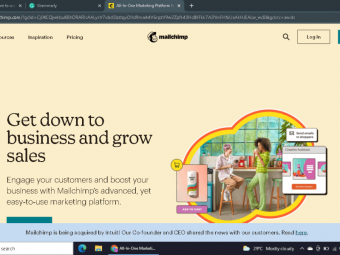English has become an international language, and the need to use English in communication is extremely necessary. However, there are over 7000 languages in the world and not everyone uses English as a daily communication language. In that case the role of interpreter as a bridge to support the interaction between two languages more effectively.
About the course
What you will learn
- Interpretation can be used in many fields: medical, business, and legal setting as well as effective set-up and protocol for telephonic and VRI (Video Remoting Interpreting). This will be the opportunity for getting a job or even a well-paid job as an interpreter.
- Practicing with the set up telephone and VRI in many situations.
- Understanding and implementing professional interpreter standards and ethics to become a successful interpreter.
Requirements for learners
- An interest in the proper use of foreign language Interpreter Services or
- (For Interpreters or Bilingual Individuals) demonstrable fluency in two or more languages.
Description about the course
This Udemy interpretation course provides learners detailed information about basic spoken language interpreting protocol as well as the communication skill that is related to interpretation. Video calls, telephones, etc will be ready as a simulator for learners to practice everything they have learned in particular situations including medical, business, education, etc. However, this series promotes professional conduct whenever an interpreter is needed, and focuses on HIPAA safeguards and Risk Management enhancements.
Standards and ethics in interpretation will be informed to all students joining this interpretation class. To become a professional interpreter you need to understand this very carefully due to the variety in the context of communication. The goal of this series is to teach aspiring and present spoken language interpreters, as well as interpreter service customers, how to apply professional standards to in-person, over-the-phone, and video-remote interpreting (VRI) when each is a viable choice.
There are over 200 countries in the world, each one has different cultures, so this class can reduce the chance of falling into the awkward circumstances in culture fights when becoming an interpreter.
The interpreter’s commitment to achieving excellence in their work as an interpreter should be reinforced by this series. Testimonies punctuate a variety of interpretation expectations in healthcare, law enforcement and legal settings, social service organizations, and business, emphasizing the importance of unbiased and open communication.
Risk management organizations looking for interpreters to help people with limited English proficiency (LEP) will find this series to be a useful resource for addressing marginalized communities. Several codes of professional conduct for interpreters and others who employ them are discussed and included in the series.
Who this course is for:
- Medical, Legal and Business Professionals
- Social Workers and Teachers with LEP Parents
- Interpreters and aspiring interpreters who wish to interpret in medical, legal or business settings will benefit greatly from this course.
- Law enforcement and healthcare (doctors, nurses, dentists and social workers, etc.) providers will also benefit from this knowledge base. This course may be used for continuing education and as a modular supplement to in-person interpreter training.
- Risk Management Teams seeking to meet JCAHO compliance standards by providing meaningful Interpreter Services to underserved and/or LEP populations
- Other Risk Management designees
Course Contents
The Interpretation course will be divided into 5 task and last 1h30 in total
- Interpreter Service Overview
- Explore the three modes and three methods of interpreter services delivery
- Interpreting Basics
- A Professional’s Best Practice and Codes of Ethics
- Video Remoting Interpreting
For more information about other Udemy classes, click here.
 Install Studocu Chrome Extension
Install Studocu Chrome Extension









